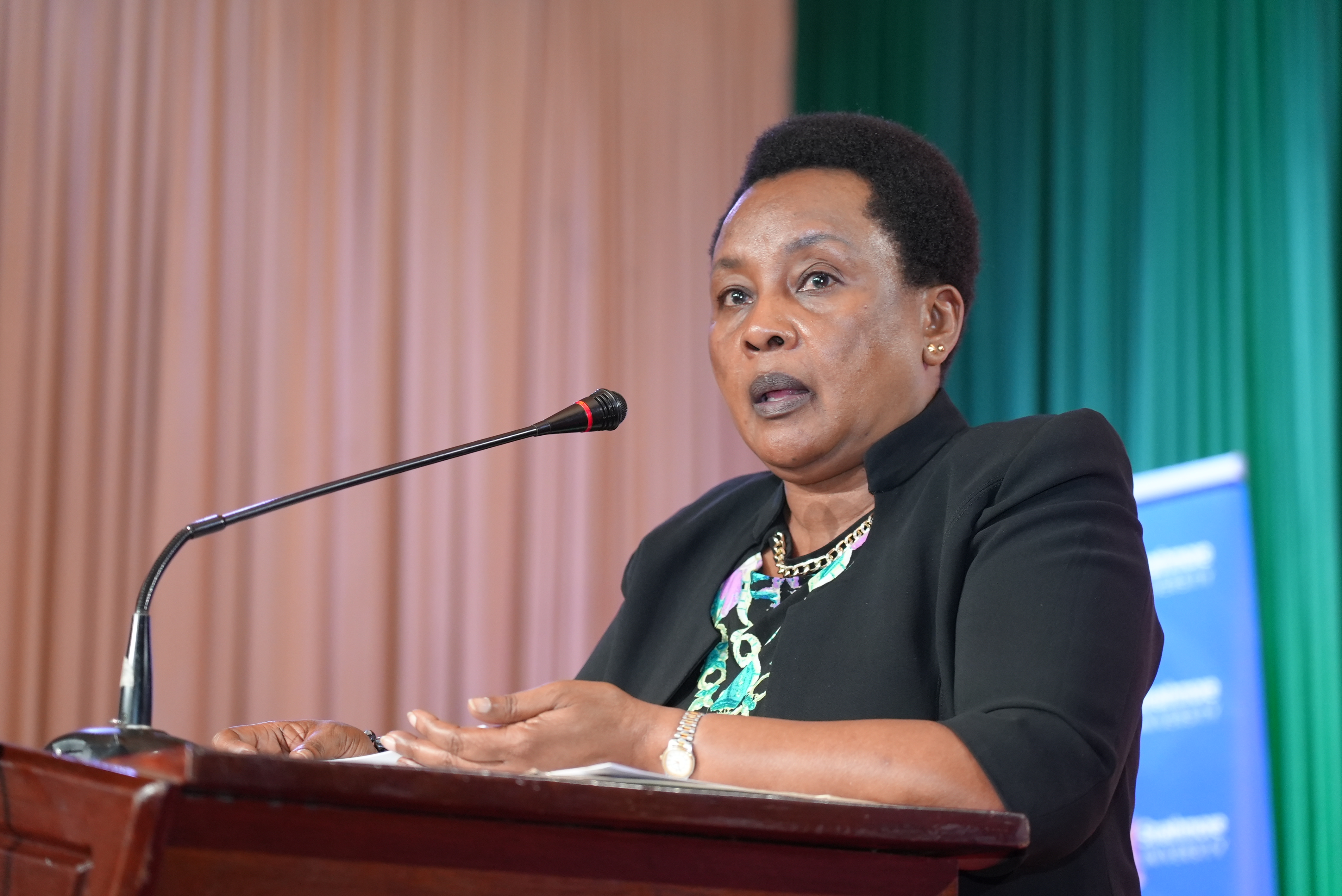
 Deputy Chief Justice Philomena Mwilu speaking at Strathmore University during the closing ceremony of Third Annual Employment and Labour Relations Court Symposium and Exhibition (ELRASE3), September 17, 2025. /JUDICIARY
Deputy Chief Justice Philomena Mwilu speaking at Strathmore University during the closing ceremony of Third Annual Employment and Labour Relations Court Symposium and Exhibition (ELRASE3), September 17, 2025. /JUDICIARY
Deputy Chief Justice Philomena Mwilu has called for urgent and concerted efforts to eliminate child labour and strengthen access to justice for children.
Speaking on Wednesday at Strathmore University during the official closing ceremony of the Third Annual Employment and Labour Relations Court Symposium and Exhibition (ELRASE3), Mwilu reaffirmed the Judiciary’s commitment to protecting children’s rights.
The symposium was held under the theme “Elimination of Child Labour and Access to Justice.”
Mwilu stressed that judges and magistrates have the responsibility to translate legal provisions into lived realities for the country’s most vulnerable.
She underlined the importance of judicial courage and creativity in tackling cases that affect children.
“Every judgment we deliver, every case we handle involving a child, is an opportunity to tilt the scales of justice towards tangible societal transformation,” she said.
The DCJ described child labour as both a legal issue and a profound matter of social justice.
She said the Judiciary remains committed to ensuring that children are protected and given opportunities to thrive.
“The fight to eliminate child labour and guarantee children access to justice is about restoring dignity to the most vulnerable, protecting the powerless, and ensuring that every child has the chance to learn, to grow, and to dream,” she added.
Mwilu praised ELRASE as a critical platform for reflection, learning and action on labour issues, noting that the discussions held this year will inform judicial practice and policy.
The symposium explored Kenya’s legal and policy frameworks, international and regional conventions, and new technologies such as artificial intelligence that can help detect and prevent child exploitation.
Mwilu highlighted the unique risks faced by children in displacement contexts and urged collective efforts to address such vulnerabilities.
She reaffirmed the Judiciary’s alignment with its institutional blueprint, Social Transformation through Access to Justice (STAJ), which prioritises the protection of vulnerable groups, including children.
She pledged that the lessons drawn from ELRASE3 would strengthen jurisprudence on child labour.
“No child should work when they should be learning; no child should suffer when they should be safe; no child should be invisible when they should be heard,” she declared as she officially closed the symposium.
During the session, Principal Judge of the Employment and Labour Relations Court (ELRC), Justice Byram Ongaya, emphasised that access to justice for children means recognising them as rights holders.
He said child labour undermines fundamental rights enshrined in both domestic law and international conventions.
“We must work to remove barriers for children to access justice such as costs, distance, language, stigma, fear of retaliation and other barriers,” he said.
He added that remedies should include ending harmful labour practices, addressing gaps between law and reality, and ensuring protection, care and dignity for affected children.
Justice Ongaya also called for strategic and public interest litigation to advance child protection and strengthen accountability.
Now in its third edition, ELRASE has become a flagship platform of the ELRC.
It brings together judges, legal practitioners, academics and other stakeholders to deliberate on emerging issues in labour law and justice.
This year’s focus on eliminating child labour underscored the urgency of protecting children’s rights and upholding their dignity in society.


![Number [in millions] and percentage of children aged 15-17 years in child labour](/_next/image?url=https%3A%2F%2Fcdn.radioafrica.digital%2Fimage%2F2025%2F06%2F54cba2a6-accb-4b86-a302-c7a4ed6248a0.jpeg&w=3840&q=100)









